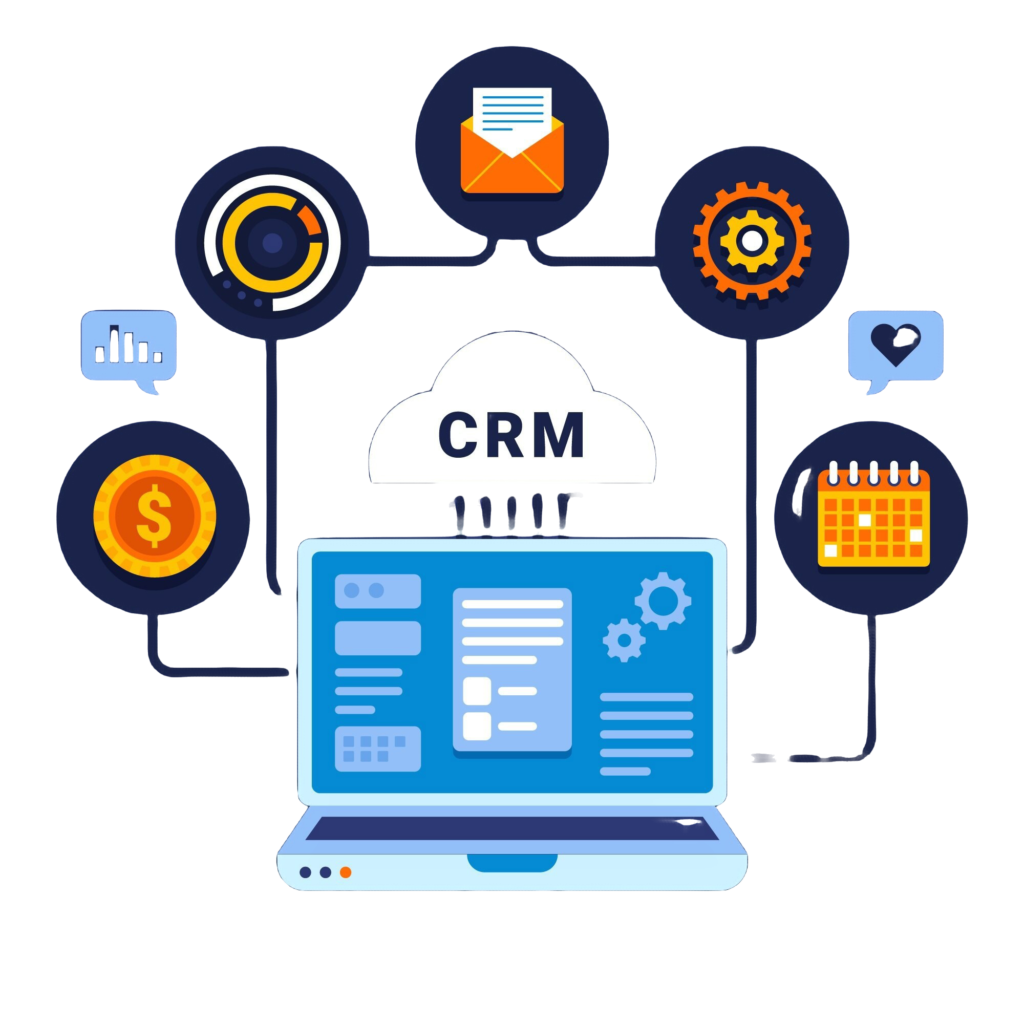There is more to running a small business today beyond the physical storefront as a result of the present day’s fast-paced digital economy. Indeed, with the ever-growing influence of online shopping, a comprehensive e-commerce presence is the only gateway to reaching a massive audience and multiplying sales. However, this may change if you partner with a trusted e-commerce service provider and integrate advanced features into your online business. The report discusses the best e-commerce features small businesses should embrace to gain growth and how the right e-commerce service provider can help you excel in the market.
1. User-Friendly Website Design
The foundation of a successful e-business lies in a user-friendly website design. A well-designed and aesthetically pleasing site will make an excellent long-term impression on the customer. For small businesses, a website that is intuitive and easy to navigate goes a long way in upgrading the shopping experience and turning visitors into loyal customers.
Imagine visiting a disorganized, slow-loading site. You probably wouldn’t stay there for long. That’s where an e-commerce service provider can make all the difference. They will help to create an attractive, workable site, both beautiful and fit for business needs. Design considerations would necessarily include cleanliness and prominent calls to action, which makes it much better for users to find their way through and begin the checkout process.

How an e-commerce service provider of quality improves website design:
– Enhance product categories, with easy search functionality.
– Better checkout procedures that decrease cart abandonment.
-Custom themes for a business according to your identity.
2. Mobile Optimization
Mobile optimization cannot be ignored, especially as most online purchases are made through smartphones today. More than 50% of e-commerce traffic has now come through mobile devices. Your website must offer a seamless mobile experience, or you risk losing a large number of potential customers due to a lack of mobile optimization.
A good e-commerce service provider will ensure that your website is responsive, allowing it to adapt well to any screen size. This not only enhances the user experience but also improves your search engine rankings, as Google now uses mobile-first indexing. A mobile-optimized site leads to faster load times, smoother navigation, and an overall better shopping experience.

Key mobile optimization strategies:
– Use of responsive design that adjusts to different screen sizes.
– Fast-loading pages for a smooth experience, especially on mobile data.
– Simple navigation and easy access to product categories and the checkout page.
3. Secure Payment Gateways
Security is an excellent part of operating an online business. Online businesses can’t and won’t succeed without secure payment gateways because customers won’t trust your site, and a lack of trust equates to fewer sales. The latter helps build customer confidence because it secures sensitive information, including credit card details.
It will also enable you to provide credit cards, digital wallets, and even cryptocurrency as payment options over a secure, encrypted channel. The extra fraud detection and encryption measures are also included for protecting the customer’s data. Moreover, offering several types of payment increases the chance of conversion because the customers want choices at the time of the transaction.

Benefits of secure payment gateways from an ecommerce service provider:
– Encrypting sensitive data will help prevent security breaches.
– Integration of multi-payment options (besides PayPal and Apple Pay).
– Developing a system for fraud detection, thus raising trust among clients.
4. Strategic SEO Tactics
Organic traffic to your e-commerce website will primarily be driven by ensuring the optimization of your e-commerce site to search engines. That’s where SEO plays a major role in driving business. The SERPs the higher ranks, and it increases the chances of customers finding you. Good SEO strategies include keyword optimization, quality content, backlinks, and technical proficiency of the website.
When selecting an e-commerce service provider, it’s important to choose one with experience in SEO. This expertise can help identify high-ranking keywords, such as “e-commerce service provider,” and use them effectively in your content, product descriptions, and metadata. Doing so will enhance your site’s relevance in search engines, increase organic traffic, and improve the likelihood of achieving your desired conversions

Best SEO strategies for e-commerce growth:
-It includes natural keywords such as “e-commerce service provider” in the product description, headings, and blog content.
-Meta tags and descriptions optimized.
-You have good backlinks from the sites mentioned above, which add to the domain authority.
-You also update regularly so that your content remains relevant.
Through constant optimization of the website’s SEO, you’re sure that your site is always in view of the potential customers who will drive sustained organic growth over time.
5. Customer Relationship Management (CRM) Tools
Customer relationships are the backbone of any successful business. CRM tools are invaluable for tracking interactions with customers, analyzing purchasing behavior, and managing customer data. A well-implemented CRM system enables you to offer personalized experiences to your customers, which in turn builds loyalty and increases retention.
A professional ecommerce service provider can help you choose the right CRM tools that integrate seamlessly with your online store. These tools allow you to store customer data, segment audiences, and create targeted marketing campaigns based on behavior patterns. For example, CRM systems can help you send personalized emails to customers who abandoned their carts, reminding them to complete their purchase.

Advantages of CRM tools:
-Tracking interactions with customers for quality improvement.
-Active marketing campaigns with personalized interaction.
-Finding revenue opportunities and cultivating potential leads.
This ensures that a CRM system implementation provides customers with excellent service, enhancing their satisfaction and loyalty further.
6. Personalized User Experience
Today, consumers seek a personalized shopping experience that reflects their preferences and behaviors. Customized product offerings, discounts based on purchase history, and tailored content recommendations present significant opportunities for user engagement and can significantly increase sales. These personalized experiences encourage repeat purchases, as customers are more likely to return to a site that “remembers” them.
By using the potential of data analytics and machine learning with an e-commerce service provider that has experience, small businesses can create personalizing shopping experiences. For example, such a company can present products that correlate with the past browsing history or purchases of a customer to enhance the prospects of conversion. Apart from these, segmented marketing campaigns may result in boosting customer engagement and sales as well.

Personalization tactics with an e-commerce service provider:
– Data-driven product recommendations for browsers.
– Personalized email campaigns that are targeted at distinct customer groups.
– Different offers and discounts to motivate repeat purchases by targeting potential customers.
7. Social Media Integration
It is an integral part of e-commerce marketing. Social media features integrated with the online store will reach more customers, and customers will be bumped into products. Shop Now buttons on applications such as Instagram and Facebook help the customer complete the purchase without leaving the application.
An experienced e-commerce service provider can get you set up for social media integrations that drive sales while giving you measurement tools. Having customer reviews and user-generated content featured on your site builds trust, which ultimately gets people to buy from you.

Benefits of social integration:
-Increased visibility of the brand with engagement with a customer
-Ease of buying directly from the social media channel.
-Access to customer feedback and insights to improve services.
Conclusion
The right e-commerce feature leads to the growth and success of small businesses in the digital age. User-friendly website designing and mobile optimization, secure payment gateways, and effective SEO strategies all interact to create a seamless and efficient shopping experience for customers.
The choice of ecommerce service provider is, therefore part of this process because they can offer you expert advice and tools that heighten your prospects of staying competitive in the market. Being well-versed in website designing, SEO techniques, and CRM tools will help you build a strong online store that doesn’t just attract but also drives long-term growth.
Harness the power of e-commerce today, and team up with a trusted e-commerce service provider to ensure the success of your small business in the digital marketplace.
